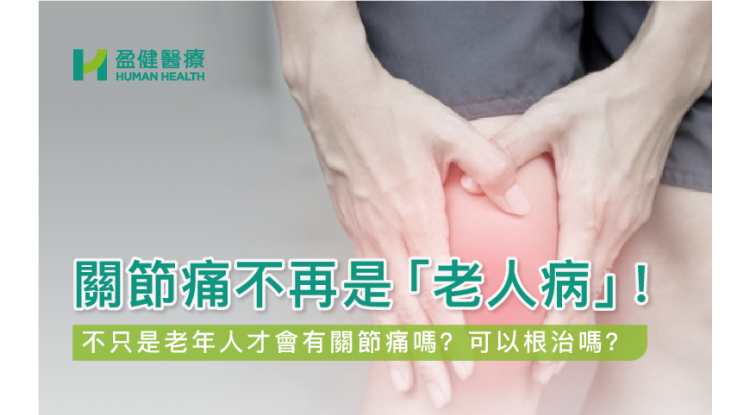Joint pain is no longer just an “elderly problem”!

Many people associate joint pain with ageing and assume it only affects the elderly.
That belief is only partially true.
Isn’t Joint Pain Only for Older Adults?
Older adults often suffer from degenerative arthritis (osteoarthritis), while middle‑aged people are more likely to experience rheumatoid arthritis.
-
About 60% of people aged 60 and above are affected by osteoarthritis, which is caused by joint degeneration due to ageing.
-
In contrast, rheumatoid arthritis tends to affect middle‑aged adults and is related to immune system disorders.
The immune cells become overactive and repeatedly attack the body’s own tissues, leading to inflammation in the joints and muscles. -
Young, physically active individuals may also suffer joint pain due to improper exercise posture or habits.
-
Office workers who sit for long hours or frequently cross their legs often experience pain in the lower back and knees.
Should People with Joint Pain Avoid Exercise?
No. Exercise is beneficial for health, but those with joint pain should take extra care.
Here are some important tips:
-
If you have existing joint problems, consult a doctor first to determine which types of exercise are appropriate. Incorrect posture can worsen symptoms.
-
Always warm up properly and stretch your body before starting exercise to prevent post‑workout joint pain.
-
Avoid poor posture—for instance, leaning too far forward while running shifts the body’s centre of gravity and increases stress on the knees and spine.
-
Do not suddenly engage in intense or high‑impact exercise, which increases joint load and may strain or injure muscles around the joints.
Can Joint Pain Be Completely Cured?
Appropriate exercise and healthy eating can help relieve joint pain, but complete recovery is unlikely without long‑term effort and proper activity.
Most treatments focus on pain management and symptom relief, such as:
-
Performing light, doctor‑recommended exercises targeting specific joints—such as swimming, walking, cycling, or tai chi.
-
Reducing body weight, as excess weight adds pressure to joints, especially the knees and spine.
-
Taking supplements under medical advice, such as glucosamine to strengthen cartilage, and bioactive collagen peptides to help reduce inflammation and ease joint discomfort.




